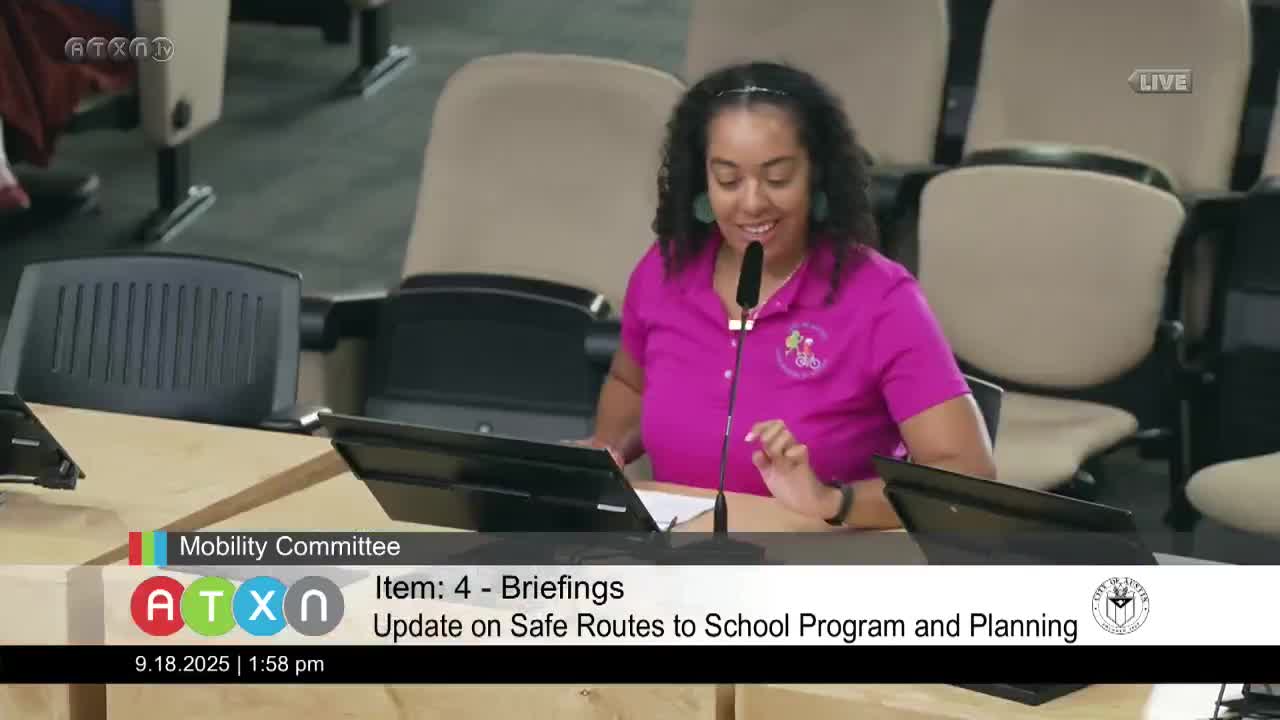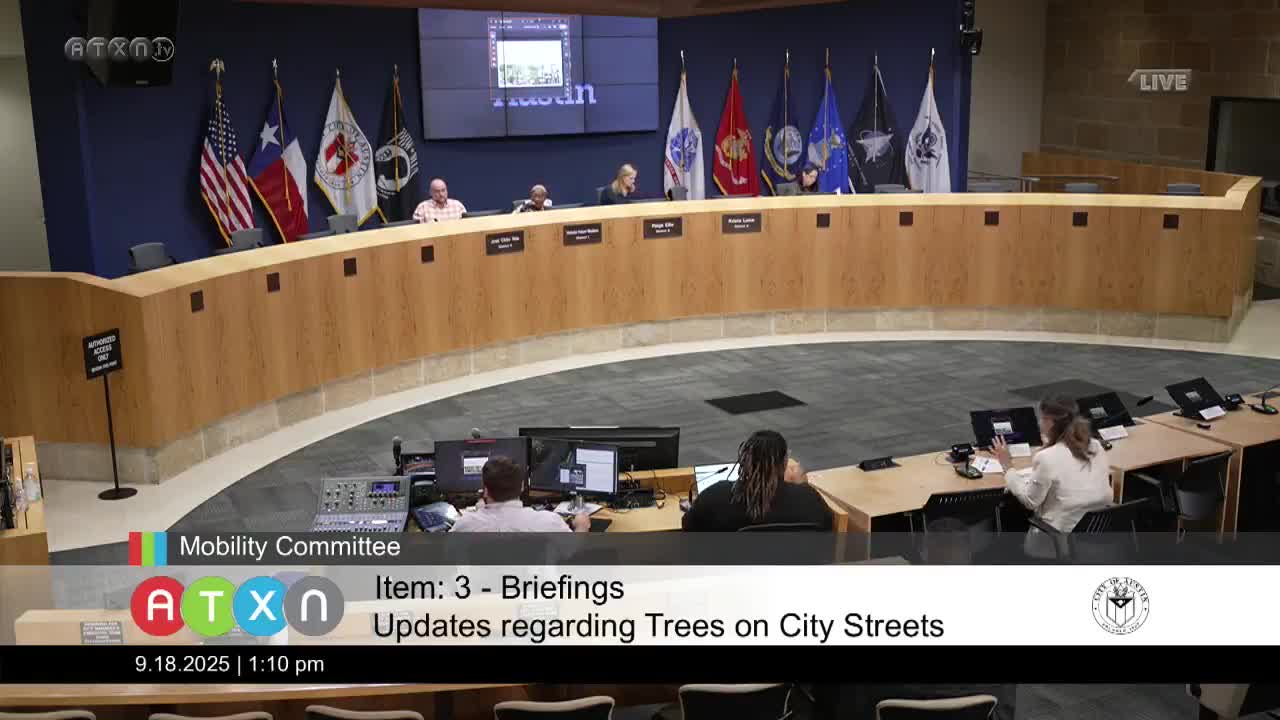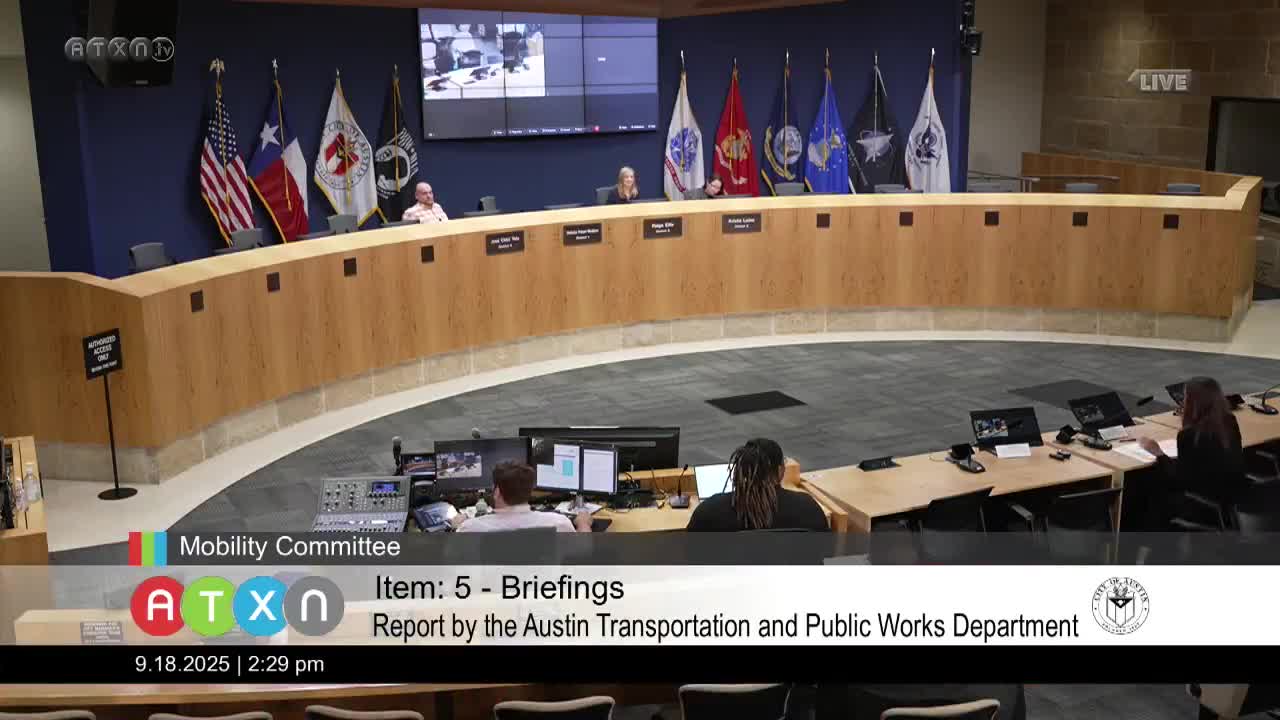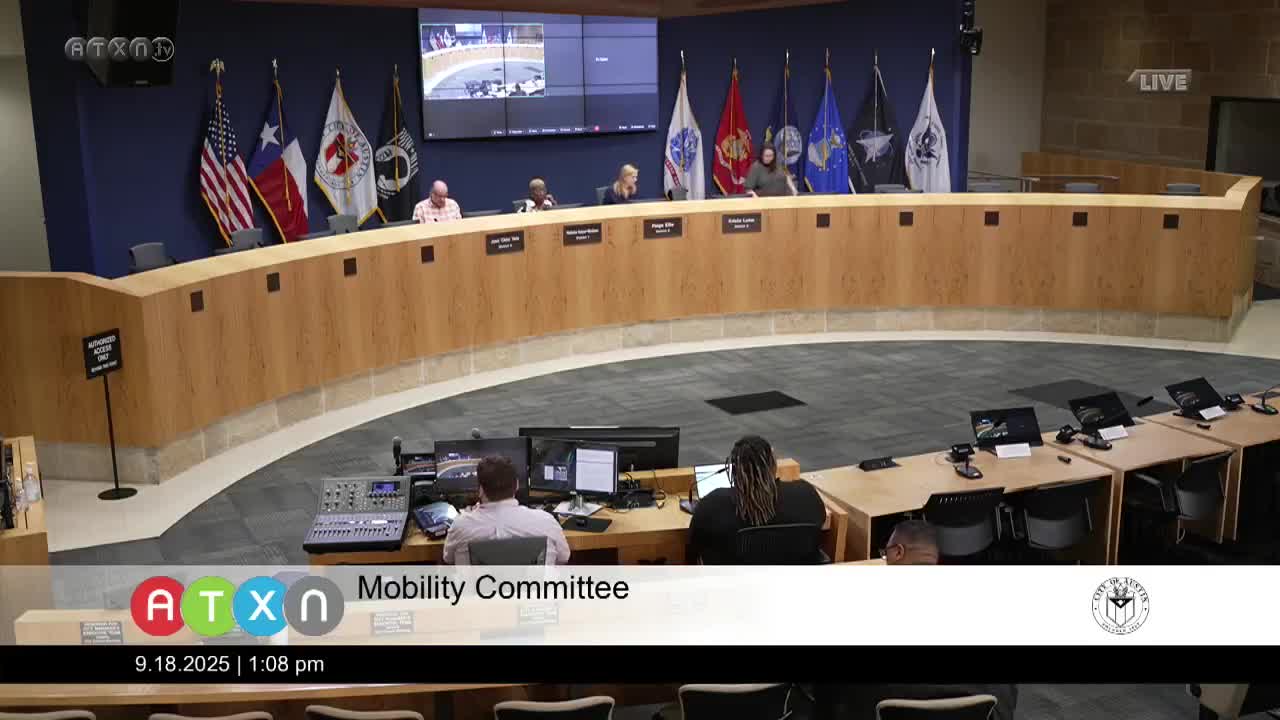Article not found
This article is no longer available. But don't worry—we've gathered other articles that discuss the same topic.

Safe Routes to School program reports 603 barriers addressed; $38.9 million spent of combined bond funding

Mobility committee briefed on TARP—indings and 12 recommendations to ease barriers to street trees in Austin

Transportation staff update Mobility Committee on corridor work, Ross Road and Airport Boulevard construction and regional transportation study

